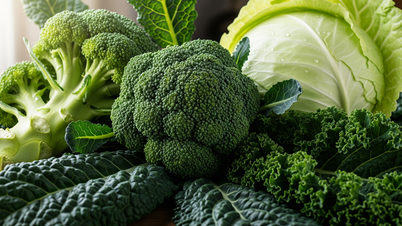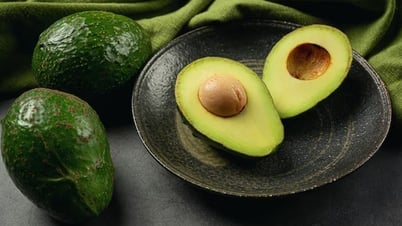
Sports are not only good for height development and endurance, but also good for the intestines - Illustration: TTO
According to Dr John Hawley, head of nutrition and sport at Australian Catholic University, Australia, the gut is a "trainable organ" and can be trained through exercise.
What is gut microbiota?
Your digestive system is home to billions of microorganisms such as bacteria, fungi, and viruses. This is called the gut microbiome. Fostering a healthy and diverse gut microbiome can provide many health benefits.
Research has shown that the gut microbiome is involved in digestion, metabolism, immunity, and development, or possibly in the prevention of many diseases. More recently, studies have shown that in addition to appropriate diet, medication use, exercise also has an impact on gut health.
How does exercise affect gut health?
According to Mr. Hawley, for people who have a habit of long-distance running, although it can be tiring, it brings many benefits.
Physical activity appears to increase levels of bacteria that produce short-chain fatty acids — substances that support digestive health, reduce inflammation and may even help protect against diseases like colon cancer, said Dr. Sara Campbell, director of the gut health and exercise lab at Rutgers University, New Brunswick.
This is still a relatively new area of research, so scientists are still learning more. But "years of research have been very consistent, both in humans and in animal models, that these changes occur in a positive way in both men and women," Campbell told Health magazine.
What benefits does exercise have for gut health?
Researchers are actively exploring the impact of the gut microbiome on everything from inflammatory bowel disease to cardiovascular disease to cancer.
“People who are physically active have lower rates of colon cancer,” said Dr. Jeffrey Woods, professor of health and exercise science at the University of Illinois. “Exercise-induced changes in the gut microbiome and its products may be one reason, but this remains to be proven.”
Why can exercise help your gut health?
Researchers are still trying to answer that question, Hawley says. But his recent research suggests that “crosstalk” between muscles and the rest of the body may be an important factor.
When you exercise, Dr. Hawley points out, your muscles release a series of molecules that enter your bloodstream and travel to other organs. This process helps explain why organs throughout the body benefit from physical activity, says Dr. Hawley.
“Your kidneys or liver don’t get involved when you run, but we know that your liver and kidneys get healthier,” he says. The same seems to be true for your gut microbiome.
Campbell says the relationship seems to work both ways: exercise benefits the gut, and a healthy gut improves motility. In short, the gut and the rest of the body seem to be in constant communication and coordination.

Cycling is a good exercise for intestinal health - Photo: TTO
What exercises are good for the intestines?
“Endurance exercise seems to have the greatest impact on the gut microbiome,” explains Dr. Woods.
Studies have linked running and cycling to positive changes in the microbiome, but a 2024 research review found little published evidence supporting resistance training.
You don't have to be a marathon runner to see positive changes from cardio, Woods' research shows.
In a small study he co-authored, previously sedentary but lean adults experienced positive changes in their gut microbiota after just six weeks of running or cycling three times a week for 30 to 60 minutes each time.
The best exercise regimen is the one you can maintain, and that seems to be true when it comes to gut health, too. “Once you stop exercising, your gut microbiome goes back to its normal, individual state,” says Campbell.
“You have to keep exercising to maintain the benefits, just like with most anything else.”
Source: https://tuoitre.vn/tap-the-duc-co-the-giup-duong-ruot-khoe-hon-het-tao-bon-giam-ung-thu-dai-trang-20250629125450007.htm



![[Photo] Prime Minister Pham Minh Chinh chairs meeting of National Steering Committee on International Integration](https://vphoto.vietnam.vn/thumb/1200x675/vietnam/resource/IMAGE/2025/8/26/9d34a506f9fb42ac90a48179fc89abb3)

![[Photo] Brilliant red of the exhibition 95 years of the Party Flag lighting the way before the opening](https://vphoto.vietnam.vn/thumb/1200x675/vietnam/resource/IMAGE/2025/8/27/e19d957d17f649648ca14ce6cc4d8dd4)


![[Photo] Many people eagerly await the preliminary review despite heavy rain](https://vphoto.vietnam.vn/thumb/1200x675/vietnam/resource/IMAGE/2025/8/27/4dc782c65c1244b196890448bafa9b69)
























































![[Photo] General Secretary To Lam attends Meeting with generations of National Assembly deputies](https://vphoto.vietnam.vn/thumb/402x226/vietnam/resource/IMAGE/2025/8/27/a79fc06e4aa744c9a4b7fa7dfef8a266)






























Comment (0)